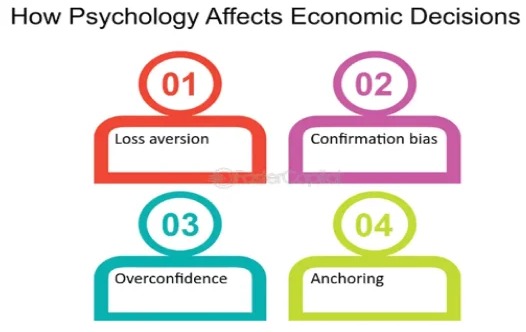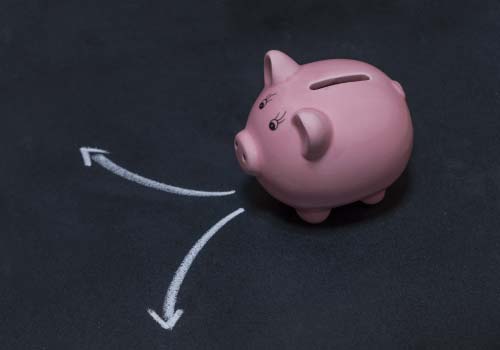Economics and psychology are deeply intertwined, with human behaviour playing a critical role in economic decision-making. While traditional economic theories often assume rationality, real-world decisions are frequently influenced by a range of psychological factors. This interplay between psychology and economics, known as behavioural economics, explores how cognitive biases, emotions, and social influences shape our financial choices. In this article, we'll delve into the psychological principles that drive economic decisions and the implications for individuals and policymakers.
Behavioural economics challenges the classical economic assumption that individuals always act rationally to maximize their utility. Instead, it acknowledges that people often deviate from rational behaviour due to cognitive biases, emotions, and social influences. By integrating insights from psychology, behavioural economics provides a more nuanced understanding of economic decision-making.
Cognitive Biases:
Cognitive biases are systematic patterns of deviation from norm or rationality in judgment. ;These biases often lead to perceptual distortion, inaccurate judgment, illogical interpretation, or what is broadly called irrationality.
Anchoring:
Anchoring refers to the human tendency to rely heavily on the first piece of information encountered when making decisions. For instance, if a person sees a high-priced item first, they may perceive subsequent prices as lower, even if they are objectively high.
Loss Aversion:
Proposed by Daniel Kahneman and Amos Tversky, loss aversion suggests that people feel the pain of losses more acutely than the pleasure of equivalent gains. This can lead to risk-averse behaviour, such as selling winning investments too early and holding on to losing ones too long.
Overconfidence:
People that suffer from overconfidence bias tend to overestimate their skills, expertise, or forecast accuracy. This may lead to excessive stock market trading or underestimation of the dangers associated with start-up businesses by business owners.

Emotions play a substantial role in decision-making, often overriding rational thought processes.
Fear and Greed:
These emotions are particularly influential in financial markets. Fear can lead to panic selling during market downturns, while greed can drive speculative bubbles, as seen in events like the dot-com bubble or the 2008 housing crisis.
Happiness and Spending:
Research has indicated that when people are feeling positive, they are more inclined to spend money. Negative feelings, on the other hand, may cause people to save more money and spend less as they strive for financial stability.
Human behaviour is heavily influenced by social factors, such as cultural norms, peer pressure, and social learning.
Herd Behaviour:
Herd behaviour describes how individuals in a group can act collectively without centralized direction. In economic contexts, this can lead to phenomena like stock market bubbles and crashes, where people follow the actions of others rather than making independent decisions.
Social Norms: Social norms is the tendency to look to others to determine appropriate behaviour, especially in uncertain situations. For example, seeing others invest in a particular stock can create a bandwagon effect, driving more people to buy it without thorough analysis.
Example 1: The Stock Market
Stock markets are fertile grounds for studying the psychological influences on economic decisions. Cognitive biases, emotions, and social influences all play significant roles in stock market behaviour.
Anchoring: Investors might anchor on a stock's historical high price, perceiving current prices as bargains even if the company's fundamentals have deteriorated.
Loss Aversion: Investors often hold on to losing stocks for too long, hoping to avoid realizing a loss, while quickly selling winners to lock in gains.
Herd Behaviour: During market bubbles, such as the dot-com bubble, investors often follow the crowd, driving up stock prices beyond reasonable valuations. Conversely, during crashes, panic selling can lead to a rapid decline in prices.
Example 2: Consumer Behaviour
Consumers' purchasing decisions are also heavily influenced by psychological factors.
Anchoring: Retailers use anchoring by setting high initial prices and then offering discounts, making the sale price appear more attractive.
Social Norms: Products with high ratings and positive reviews are more likely to be purchased, as consumers rely on the experiences of others to guide their decisions.
Loss Aversion: Limited time offers and fear of missing out (FOMO) can drive impulsive buying decisions, as consumers want to avoid the perceived loss of missing a deal.
Understanding the psychology behind economic decisions has significant implications for policymakers. By leveraging insights from behavioural economics, policymakers can design interventions that better align with how people behave.
Nudging:
Nudging involves subtly guiding people toward beneficial behaviours without restricting their choices. This concept, popularized by Richard Thaler and Cass Sunstein, has been applied in various policy areas.
Savings and Retirement:
Automatic enrolment in retirement savings plans leverages inertia, increasing participation rates without forcing individuals to take action.
Health and Wellness:
Placing healthier foods at eye level in cafeterias can encourage better dietary choices without eliminating options.
Behavioral Insights in Public Policy Behavioural insights can improve the effectiveness of public policies by addressing cognitive biases and emotional influences.
Tax Compliance: Simplifying tax forms and highlighting social norms (e.g., "most people pay their taxes on time") can increase compliance rates.
Energy Conservation: Providing households with information on their energy usage compared to their neighbours can motivate reductions in consumption through social comparison.
The psychology that drives economic decisions reveals the complex interplay between rationality and human behaviour. Cognitive biases, emotions, and social influences often lead individuals to make decisions that deviate from traditional economic theories. By understanding these psychological principles, individuals can make more informed financial choices, and policymakers can design more effective interventions.
Behavioural economics enriches our understanding of economic decision-making, providing valuable insights into why people behave the way they do. By acknowledging the psychological underpinnings of economic behaviour, we can create systems and policies that better serve individuals and society.
